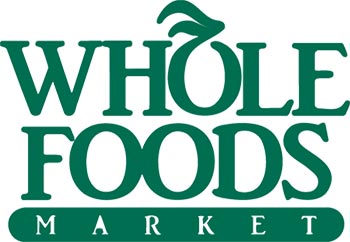Top Class Actions’s website and social media posts use affiliate links. If you make a purchase using such links, we may receive a commission, but it will not result in any additional charges to you. Please review our Affiliate Link Disclosure for more information.
Whole Foods Mar
The false labeling class action lawsuit filed on Nov. 10 by plaintiff Stephen Kubick of California concerns Whole Foods 365 Everyday Value brand of Greek yogurt.
According to Kubick, Whole Foods’ Greek yogurt says on its label that it “contains 2 grams of sugar per serving.”
“This statement, however, is false, as studies have found that the yogurt contains over 11 grams of sugar per serving, more than five and half times the labeled amount,” the false labeling class action lawsuit states.
“In fact, no Greek yogurt on the market has only 2 grams of sugar per serving, as all Greek yogurt — even plain Greek yogurt to which no sugar is added and/or is artificially sweetened — naturally contains more than 2 grams of sugar lactose,” it adds.
Kubick claims that this is frustrating “for health conscious consumers” who are trying to keep their sugar intake down.
The California man says that he purchased Whole Food’s Greek yogurt from a location in Santa Monica based on the sugar content claims on the label.
“Had Whole Foods labeled its yogurt with the correct sugar content, 11 grams, plaintiff would not have purchased the yogurt or would have paid less for it,” the Whole Foods class action lawsuit states.
Kubick says he paid $1.79 for each six ounce container of Greek yogurt and $5.99 for each 32 ounce container.
Whole Foods was opened in 1980 as “America’s first national ‘Certified Organic’ grocer,” the Greek yogurt class action lawsuit explains.
“In addition to selling products from other manufacturers, Whole Foods manufactures, promotes and sells natural and organic products under its exclusive product line, the Whole Foods 365 Everyday brand,” it adds.
According to Whole Foods’ website, it says that the nutritional labels for its line of food products “are true and accurate.”
“Our Private Label registered dietitian reviews each nutrition label for accuracy and completeness before the label is printed,” the website states, according to the Whole Foods lawsuit.
Kubick contends that “unless this statement on Defendant’s website is false, then Whole Foods was fully aware of the contents of its store brand Greek Yogurt and of the fact that the yogurt’s actual sugar content was dramatically higher than what is stated on the label.”
Kubick proposes two classes for this Whole Foods class action lawsuit — for U.S. customers who purchased Whole Foods 365 Everyday Value Plain Greek Yogurt” from Nov. 7, 2010 to the present and for California consumers who purchased the same product during the same time period at a Whole Foods market in the Golden State.
Kubick’s charges against Whole Foods includes a violation of California’s Consumer Legal Remedies Act, California’s Unfair Competition Law, breach of express warranty, and breach of implied warranty.
He is asking for a full refund of all the money spent on Whole Food’s Greek yogurt products, damages for the breach of express and implied warranty violations, and injunctive relief, preventing Whole Foods from selling Greek yogurt products that includes false claims about the sugar content.
This is not the first class action lawsuit Whole Foods has faced alleging false claims about the sugar content of its Greek yogurt. Two false labeling class action lawsuits over its sugar content were filed in August and one in late July.
These lawsuits came after Consumer Reports published a study in July about the sugar content in Whole Foods’ Greek yogurt after comparing it to those made by its competitors. The consumer watchdog group found that Whole Foods Greek yogurt contains more sugar than the yogurt made by those competitors.
Kubick is represented by Marc Stanley, Matthew Zevin and Martin Woodward of Stanley Law Group, Shannon Hopkins, Nancy Kulesa and Stephanie Bartone of Levi & Korsinsky LLP and Janine Pollack of Wolf Haldenstein Adler Freeman & Herz LLP.
Counsel information for Whole Foods is not yet available.
The Whole Foods Greek Yogurt False Labeling Class Action Lawsuit is Stephen Kubick v. Whole Foods Maket Inc., Case No. 1:14-cv-01013, in the U.S. District Court for the Western District of Texas.
UPDATE: On June 15, 2018, a Texas federal judge granted partial summary judgment in favor of WFM Private Label LP (Whole Foods) in a lawsuit the grocer filed against its supplier of Greek yogurt it sells under the Whole Foods Market 365 Everyday Value private label.
ATTORNEY ADVERTISING
Top Class Actions is a Proud Member of the American Bar Association
LEGAL INFORMATION IS NOT LEGAL ADVICE
Top Class Actions Legal Statement
©2008 – 2024 Top Class Actions® LLC
Various Trademarks held by their respective owners
This website is not intended for viewing or usage by European Union citizens.















One thought on Whole Foods Hit With Class Action Over Yogurt Sugar Content
Add me